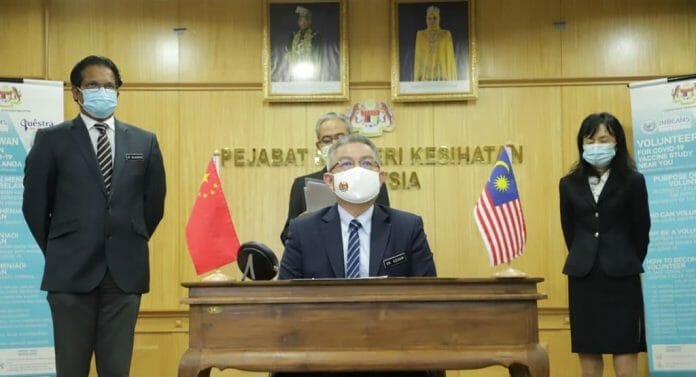In a published statement on its official portal, the Institute for Democracy and Economic Affairs (IDEAS) has called on the government to urgently implement consistent and clear standard operating procedures (SOPs) to contain the virus. It goes on to state that the constant changes and lack of clarity are not helpful for the country’s battle against Covid-19.
Let’s review, since the reimposed Movement Control Order, dubbed as MCO 2.0, began on Jan 13, there has not been a significant decrease in the numbers of daily positive infections. In fact, there seems to be an increase in the number of deaths, including those who died at home without treatment when their symptoms worsen.
The approach by the government has been reactionary rather than proactively. On Feb 9, the Government announced a set of rules that loosened the MCO. On Feb 8, the government announced that Ministers only need to serve three days’ quarantine upon returning from overseas.
Over the period of this MCO, there have been too many changes in a short amount of time, and this current situation of policy flip-flops and new guidelines is not tenable as businesses and organisations need predictability and consistency for planning purposes.
“While there is a need to balance between public health and economic concerns, the current guidelines do not provide a solution for either,” Tricia Yeoh, Chief Executive Officer of IDEAS commented.
“Has the current MCO achieved its intended objective in the fight against Covid-19, and what data do we have to show that this strategy is working? While it is important to ensure that the economic livelihood of businesses and their employees do not suffer as a result of lockdowns, what is even more important is consistency and clarity over decision-making.”
“The fact that Ministers are now exempted from the standard 10-day quarantine sends a signal that there is inconsistent application of the rules.”
The think tank has called for the Government to provide clarity for the next 12 months over what public health data points are used to decide on either tighter or looser rules. That it should adopt a pandemic management scale, meaning a tiered approach in the levels of restrictions it decides to implement. A Pandemic Severity Index as proposed by the Center for Disease Control (CDC) should be adopted, or a set of KPIs to measure the pandemic severity as previously proposed by Dr Khor Swee Kheng of the Malaysian Health Coalition.
A set of KPIs will be more holistic and more accurate to determine pandemic severity and the government’s performance, instead of seemingly relying on a single KPI of daily new cases that is easily influenced, not holistic and inaccurate. A set of KPIs will mean that decisions are data-driven, independent, and not arbitrary as is currently the case. Examples of KPIs to drive the decisions include a 7-day average of new cases, the percentage of positive cases over total tests performed, R0 and death rate.
“We urge the government to ensure that its decision-making process is transparent, data-driven and grounded in evidence. To avoid confusion, it should tell us how it is deciding when and what should be permitted. State governments should also be regularly consulted on decisions throughout the process. This ensures there is full transparency and public accountability in the way lockdowns are decided upon and then implemented, as well as the vaccination roll-out plan”, Yeoh commented.
Perhaps the National Security Council can rope in more professionals into the decision making for SOP’s, given the battlefield is constantly changing it is difficult to forecast and implement long term guidelines, the public should be engaged more actively by providing them with all the relevant information.









